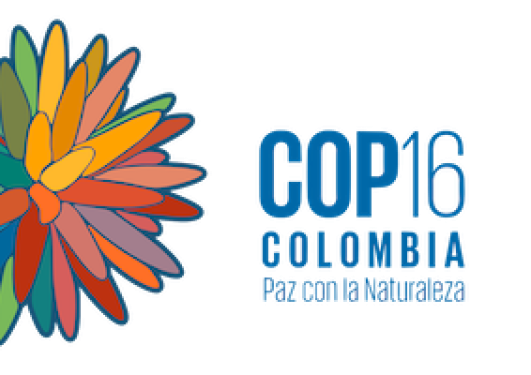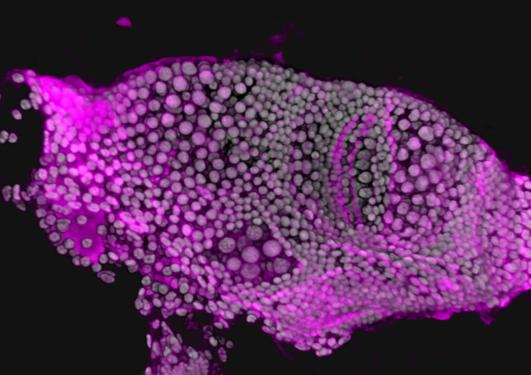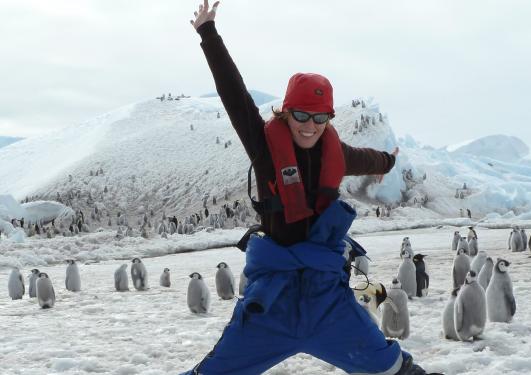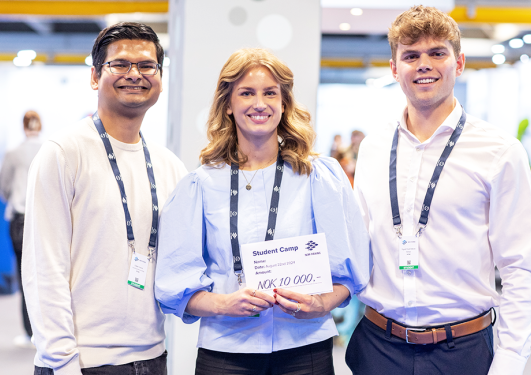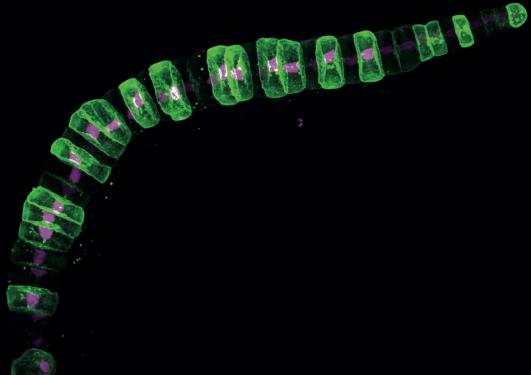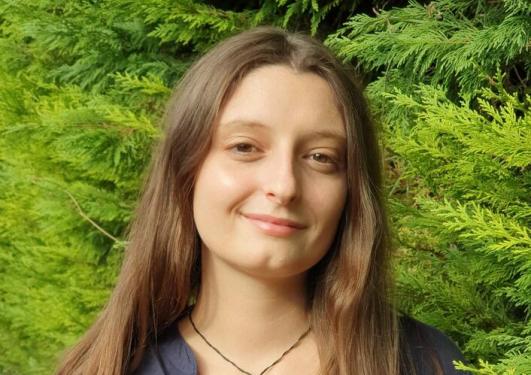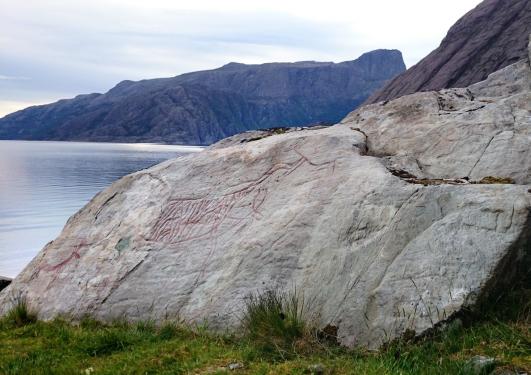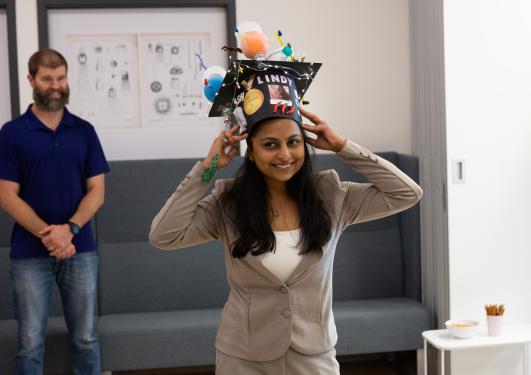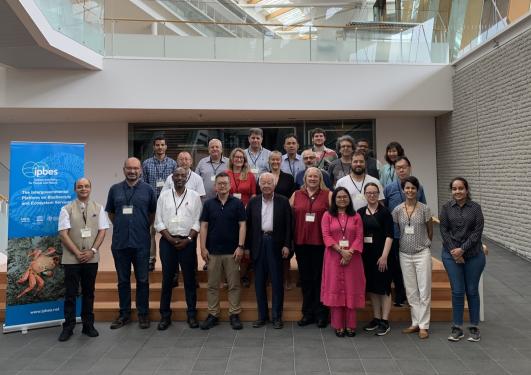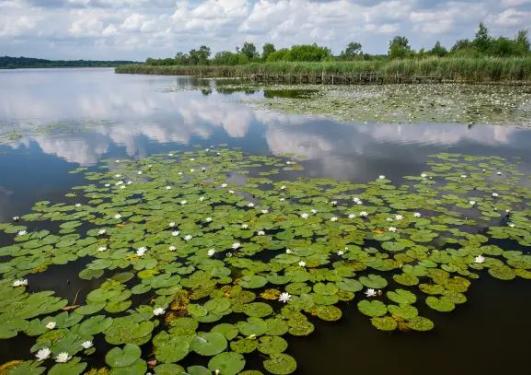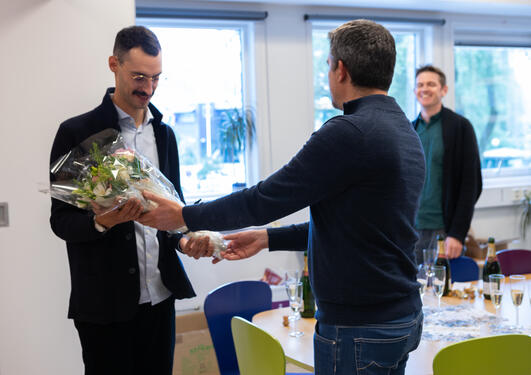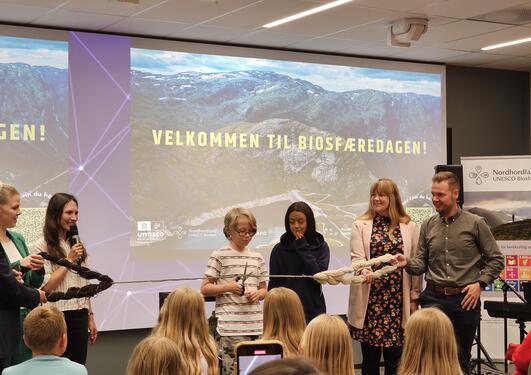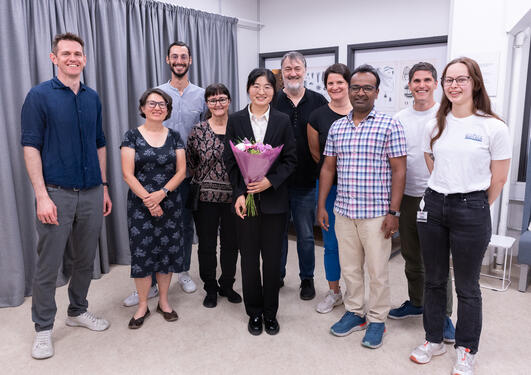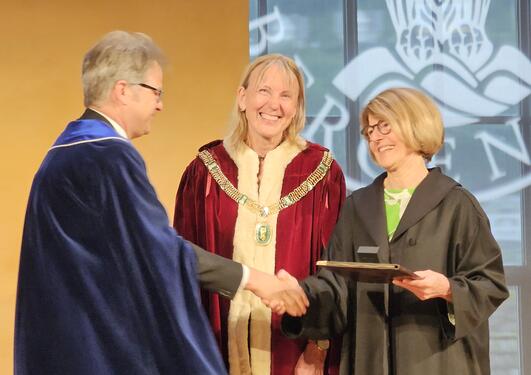News archive for Department of Biological Sciences (BIO)
Starting October 1, the new name will be the Faculty of Science and Technology. We will certainly celebrate this!
This autumn, the UNESCO Chair project BIOSPHERE are researching how Norwegian municipalities can work with the Global Biodiversity Framework, and use Alve – the biggest municipality of Nordhordland UNESCO Biosphere – as an example. They held their first of three meetings about this in September.
The sixteenth meeting of the Conference of the Parties to the Convention of Biological Diversity (COP16) is taking place in Colombia at the end of October, and CeSAM leaders have been making their opinions heard ahead of the meeting.
A recent Developmental Biology article reveals new insights into the unique "house" of Oikopleura dioica. A team of researchers led by David Lagman uncovers how Oikopleura repurposed ancient cellular machinery to build its complex, food-filtering "house," shedding light on its evolutionary origins.
The Antarctic ice shelves – the floating glaciers surrounding most of the continent – are melting from below as oceanic currents bring warm water into the cavity. But how and how fast is the ice melting? In this Ocean Science Bar, you will learn why Antarctic ice shelves matter, about what happens below them, and about what it’s like to do fieldwork ”down south”.
Hanna Sannes, master’s student in biodiversity, ecology and evolution, recently triumphed with her team at NOR-FISHING Student Camp competition, pitching an idea for the digitalization of fish spawning data.
Biological tubes are ubiquitous in animals, and their morphogenesis is a very complex process. In a new article, researchers in the Chatzigeorgiou group demonstrated the key role and function of the protein Anoctamine 10 in notochord formation in the tunicate Ciona.
In 2021, Marie Curtet investigated the evolution of stakeholder participation in European UNECO Biosphere Reserves, and what challenges and opportunities rose from the COVID pandemic and the digital shift as part of her MSc thesis. Curtet was supervised by UNESCO Chair Inger Måren and Alícia Barraclough, and her findings was recently published in The Journal of Environmental Policy & Planning...
Are irreplaceable natural and cultural values in Western Norway in danger of being destroyed by industrial development? For some time, there has been debates about future industrial development in the western Norwegian municipality of Bremanger. UNESCO Chair for sustainable heritage and environmental management, Inger Måren, is engaged in this debate.
Light is probably the most varying environmental variable in pelagic ecosystems, and the most ignored in ecological studies. In this Ocean Science Bar, you will learn how light structures the distribution of zooplankton and fish.
On the 12th of August 2024, PhD candidate Aishwarya Ravi successfully defended her thesis titled: “Polarized Recruitment of Secretory Vesicles in the Choanoflagellate Salpingoeca rosetta: Insights into the Origin of Neurosecretion”
The Annual meeting of the IPBES task force on scenarios and models was held on 17-20 June 2024 in Hayama, Japan hosted by the technical support unit (TSU) located in the Institute of Global Environmental Strategies.
CeSAM researcher Dr. Ali K. Saysel, task force expert and professor at the Department of Geography, system dynamics group in UiB joined the meeting.
UNESCO recently welcomed 11 new areas into the family of Biosphere Reserves. Two of the countries, Belgium and Gambia, are recieving their first ever BR designations. The other nine countries recieving new biosphere designations are Colombia, Dominican Republic, Italy, Mongolia, the Netherlands, the Philippines, South Korea, Slovenia and Spain.
On the 14th of June 2024, PhD candidate Giulio Rosano successfully defended his thesis titled: “Evolution of the delta family of ionotropic glutamate receptors”
For the second time, Nordhordland UNESCO Biosphere hosted the now annual Biosphere Day 30 May 2024. This years’ theme was Green transitions: Energy, land-use pressure and nature in Nordhordland. Politicians, municipal employees, researchers, and businesspeople all attended to discuss the future needs of the region.
Offering a unique perspective on the latest advances in Developmental Biology, the Nordic Developmental Biology Societies & Michael Sars Symposium Joint Meeting attracted a diverse audience and strengthened connections between Nordic and international institutions.
On the 21st of May 2024, PhD candidate Yuhong Wang successfully defended her thesis titled: “Nature's View of Ionotropic Glutamate Receptors”
“When you give nature a chance, a difficult situation can quickly be reversed. However, in order to do that, decision-makers must have the knowledge they need to take the right measures”
- Anne Larigauderie
Pages
- 2025
- 2024
- 2023
- 2022
- 2021
- 2020
- 2019
- 2018
- 2017
- 2016
- 2015
- 2014
- 2013
- 2012
- 2011
- 2010
- 2009


